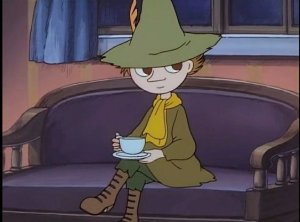Radical and comforting
For some reason, I thought this show is just another BL story with a pinch of potential polyamory on top. I was vaguely curious about it for a year, and finally decided to give it a chance a few days ago. I finished it in one sitting and cried at least twice. I don't think any other recent mainstream media resonated with me on such a visceral level when it comes to the topics of autonomy, love and freedom.
It never uses the word, but I think this story can easily be viewed through an anarchist lens. All the main characters suffer from the weight of the walls and boxes built around them: heteronormativity and patriarchy (the realisation of one's sexuality that can feel as if the world ended, the pressures of being a man, a woman, wife, husband, son), mononormativity (the way love is seen as a scarce resource, the way some forms of love are seen as more important than others), and (although briefly) it touches the edges of allo/amatonormativity as well (the way separation of romantic and sexual attraction is still such an alien concept to a lot of people). Through a messy, complicated journey, they eventually learn how to break through these walls. They learn to realise their autonomy, prioritise their own happiness, set each other free and thus find their own freedom.
Breaking the walls, changing is a scary process, it's hard, it does feel like dying sometimes. It's also scary to set someone you cherish and love free, but I think it's worth it, and this show illustrates it, even if not perfectly. Because staying inside those walls, when they weren't even made to fit you, is a slow, suffocating death. Setting things and people free doesn't mean you lose them though, you can actually get even closer with them as a result.
I like all three main characters. They're all flawed in their own ways, they feel real, and they grow and find happiness within themselves. I especially enjoyed Shuhei, probably just because I relate to him the most. I'm very happy to see a non-monogamous bisexual character, who isn't treated like a villain, but instead given the voice to question the norms that villainize people like him.
I have issues with the pacing in the last three-ish episodes, and I think the directing was a little poor at some points. But the overall themes of the story, beautiful sets and lighting, and some wonderful dialogue here and there, that I think will stay in my head for a while, outweigh its weaknesses.
I don't mind the open ending. In fact, out of all possible endings, I think this one makes the most sense to me. Although they set each other free, they're not actually separated. They still come together and smile at each other with relief. Maybe something will change in the future, but it's alright, actually. Dying is alright, because then you can build something new and wonderful.
It never uses the word, but I think this story can easily be viewed through an anarchist lens. All the main characters suffer from the weight of the walls and boxes built around them: heteronormativity and patriarchy (the realisation of one's sexuality that can feel as if the world ended, the pressures of being a man, a woman, wife, husband, son), mononormativity (the way love is seen as a scarce resource, the way some forms of love are seen as more important than others), and (although briefly) it touches the edges of allo/amatonormativity as well (the way separation of romantic and sexual attraction is still such an alien concept to a lot of people). Through a messy, complicated journey, they eventually learn how to break through these walls. They learn to realise their autonomy, prioritise their own happiness, set each other free and thus find their own freedom.
Breaking the walls, changing is a scary process, it's hard, it does feel like dying sometimes. It's also scary to set someone you cherish and love free, but I think it's worth it, and this show illustrates it, even if not perfectly. Because staying inside those walls, when they weren't even made to fit you, is a slow, suffocating death. Setting things and people free doesn't mean you lose them though, you can actually get even closer with them as a result.
I like all three main characters. They're all flawed in their own ways, they feel real, and they grow and find happiness within themselves. I especially enjoyed Shuhei, probably just because I relate to him the most. I'm very happy to see a non-monogamous bisexual character, who isn't treated like a villain, but instead given the voice to question the norms that villainize people like him.
I have issues with the pacing in the last three-ish episodes, and I think the directing was a little poor at some points. But the overall themes of the story, beautiful sets and lighting, and some wonderful dialogue here and there, that I think will stay in my head for a while, outweigh its weaknesses.
I don't mind the open ending. In fact, out of all possible endings, I think this one makes the most sense to me. Although they set each other free, they're not actually separated. They still come together and smile at each other with relief. Maybe something will change in the future, but it's alright, actually. Dying is alright, because then you can build something new and wonderful.
Considerați utilă această recenzie?







